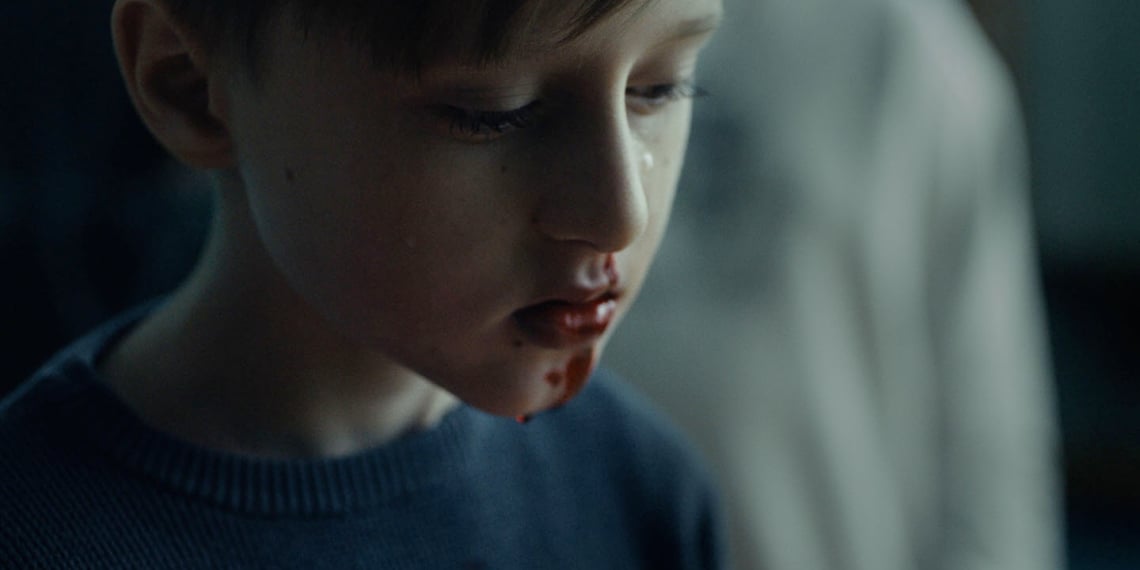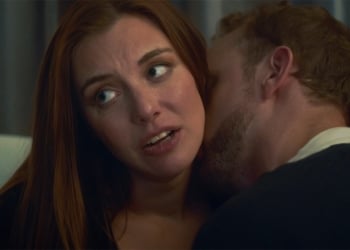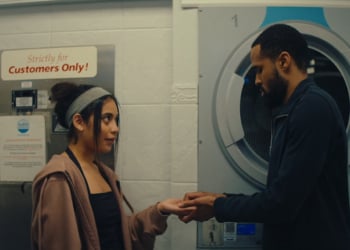Demitri Zujew’s 19-minute Crease brings its audience deep into the fold with its close-ups in 1.33:1 right off the bat. A story set in and about a school (more precisely, the institution of schools), following a pair of boys as well as the school’s celebrated principal, Crease goes in a lot of different directions that come to dovetail neatly into a portrait that is as unfortunately timeless as it is modern.
There is the Russia-Ukraine war. There is the pomp and show around a principal (Khelga Filippova as Nina Valentinovna) who has developed a reputation of efficiency and efficacy. There is the little boy (Pyota, played by Arseny Inyutin) who has, unwittingly, fallen victim to both on top of the usual pile of crap: he is a math whiz somewhere on the spectrum, and therefore an easy target for a surprisingly bloodthirsty student body (Perhaps it is only surprising when the fog of memory obscures people’s lived experience of school. Perhaps it is not surprising at all in the wake of Adolescence.) Finally, Maxim (Platon Kuzmich), one of two key characters of the plot. He is the tortured anti-hero protagonist in a story that is not focused on him, and therein lies the trouble.
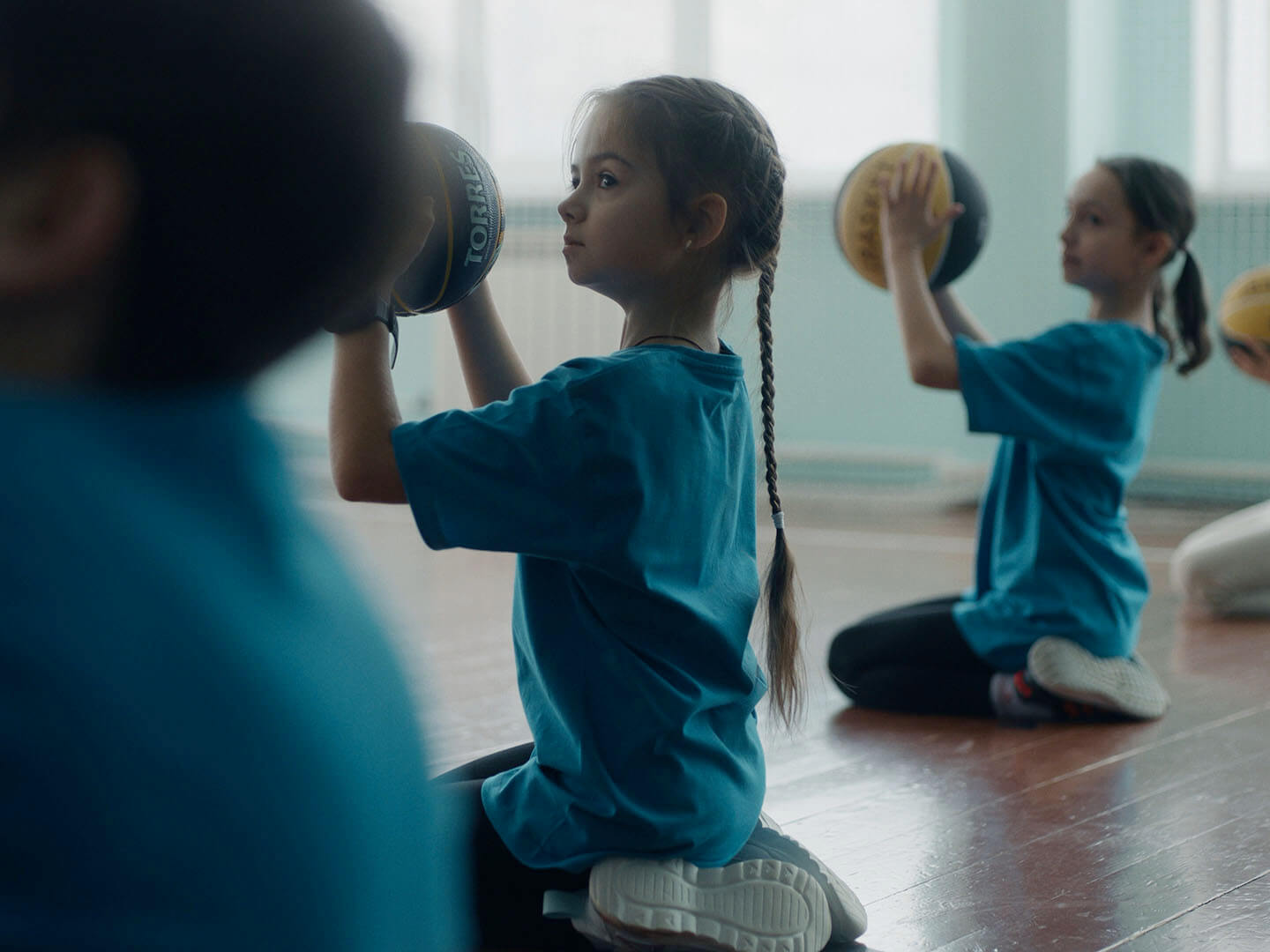
The war and the principal intertwine at school to form a barefaced framework of patriotism at the service of complete and utilitarian obedience. Things are ordered to look picture perfect at all times. What is otherwise must not be talked about lest it promote negativity, hinder proper socialisation. (Accordingly, the film has no background score until credits roll. Music, emotional and disorderly, has no place here. The silence is obedient, broken only by the violence of unceasing impositions of order.)
With ironic perfection, Pyota’s public spectacle of a bullying episode happens away from the TV crew’s eyes that have come to interview the necessarily logorrheic, happily self-congratulatory Nina Valentinovna on her win as principal of the year.
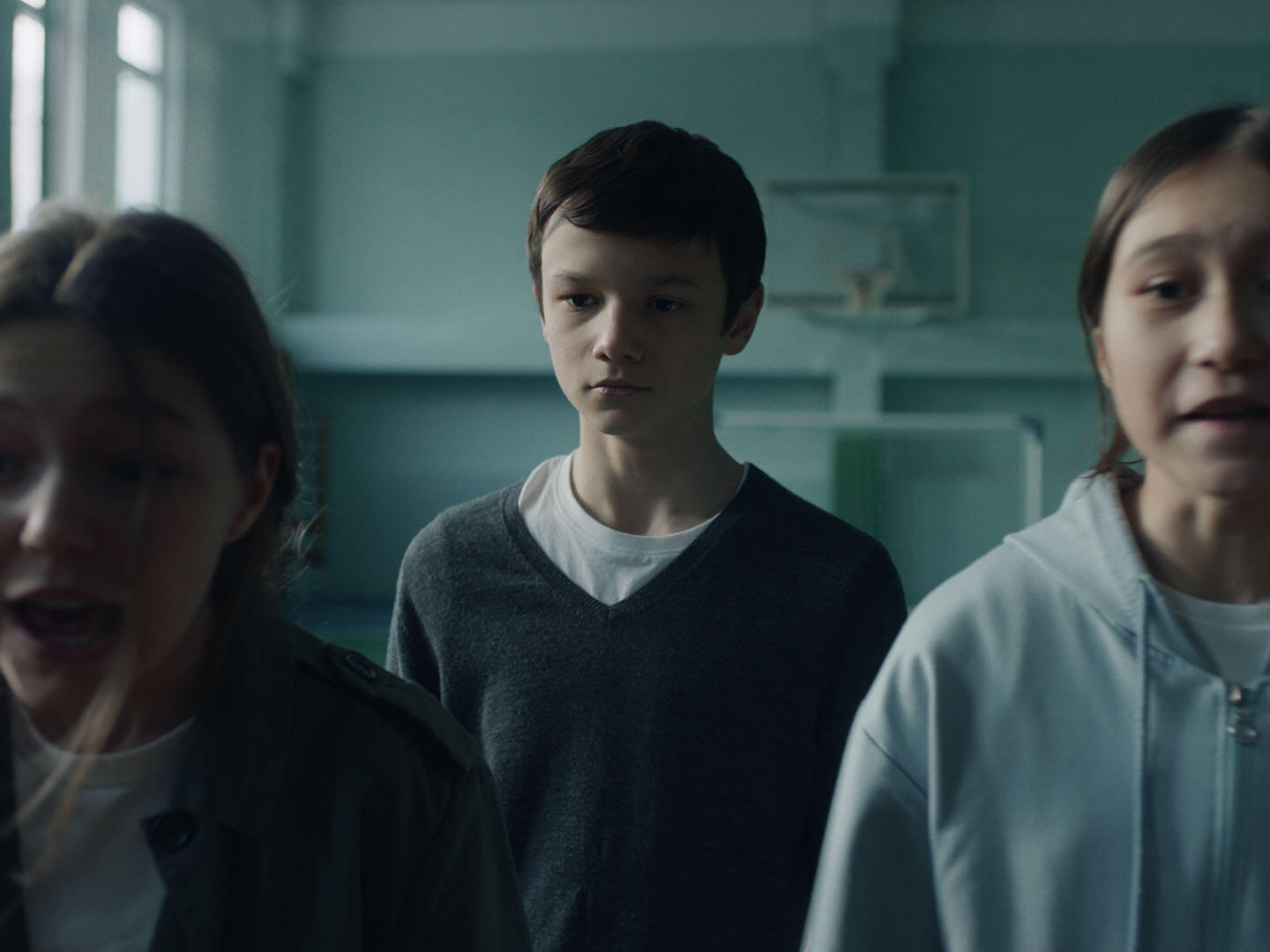
At home, the war has snaked its way into people’s lives with a more palpable grasp: trading fathers for soldiers. People used to co-parenting find themselves alone at the reins while the world around them becomes foggier everyday. Yulia Konukhova plays one such parent in a brief but grim role.
The crux of the conflict is contained not between Pyota and his bullies, but Pyota and the one who almost walked away, Maxim. The scene develops with a sinking, if familiar turn of events. It is Inyutin’s silent performance that makes it devastating. The final twist of the knife is more heartbreaking yet, and here, Kuzmich is magnificent, bolstered by the austerity of the writing and editing.
Crease is a film of details. No one is going to talk. And when they do, their words will rarely have value. It asks you to look instead—at the trembling lip, or the nervous fist, the blood speckled paper frog, and all the other origami successes and failures. Look at the kids, learn about the adults, learn that we are failing. Do something.
Crease(ЗАЛОМ): An Austere Drama on the Microcosm of School
-
Direction
-
Cinematography
-
Screenplay
-
Editing
-
Music


